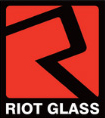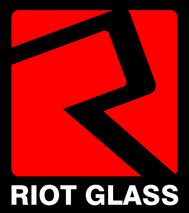Written By: Brad Campbell | May 29, 2025
Sustainable building practices are more important than ever in commercial architecture, with businesses and property owners increasingly adopting green solutions to reduce environmental impact, lower energy costs, and improve occupant comfort.
Additionally, earning sustainability certifications can offer financial benefits, including tax incentives and higher property values.
One of the most well-known certifications for sustainable buildings is LEED (Leadership in Energy and Environmental Design), a globally recognized rating system that evaluates a building’s environmental performance.
LEED certification assesses various factors, including energy efficiency, material selection, water conservation, and indoor air quality.
Since many building owners aim to simultaneously improve security and energy efficiency, they may wonder if security glazing, such as Riot Glass, can contribute to earning LEED certification in commercial architecture.
LEED certification applies to a wide range of commercial buildings, including offices, schools, retail spaces, healthcare facilities, and government buildings.
The U.S. Green Building Council (USGBC), which oversees LEED certification in the United States, offers different rating systems tailored to various project types, including:
If multiple rating systems seem applicable, the 40/60 rule helps determine the best fit:
Once the appropriate rating system is selected, a project earns points based on sustainable design choices. These points contribute to different levels of LEED certification:
LEED credits are awarded in categories such as energy efficiency, water conservation, materials selection, and indoor environmental quality.
While no single product automatically grants LEED points, materials and systems that contribute to sustainable building performance can help earn them.
LEED does not award points for using specific products or brands. Instead, credits are given for meeting performance-based requirements in areas such as energy efficiency, daylighting, and material sustainability.
As such, Riot Glass security glazing solutions do not directly grant LEED points, but can contribute to earning credits in multiple categories, particularly those related to energy efficiency and indoor environmental quality.
Commercial buildings often experience significant heat transfer through windows and doors, leading to increased heating and cooling costs. Riot Glass can help mitigate this by:
Another major benefit of Riot Glass is its ability to support daylighting strategies — a key component of LEED certification. Daylighting refers to using natural light to reduce reliance on artificial lighting, improving both energy efficiency and occupant well-being.
Traditional solutions for reducing solar heat gain, such as blinds and curtains, block natural light, increasing the need for artificial lighting. Riot Glass, on the other hand, allows high transmission of natural light while reducing solar heat gain, helping commercial spaces:
LEED certification also considers materials and resources, rewarding projects that use sustainable materials and minimize waste.
While Riot Glass is primarily designed for security, its durability and long lifespan contribute to sustainability by reducing the need for frequent glass replacements.
Additionally, retrofitting Riot Glass over existing glazing can support waste reduction strategies by minimizing material disposal — an approach aligned with LEED’s focus on resource efficiency.
While sustainability and energy efficiency are primary goals of LEED certification, security is becoming an increasingly important factor in green building design.
A well-secured building improves resilience and long-term sustainability, making security glazing a valuable addition to modern commercial architecture projects.
Riot Glass strengthens commercial buildings against:
By integrating security glazing into a building’s design, owners and architects can boost the longevity and resilience of their structures, reducing potential repair costs and environmental waste from damage.
While any commercial building can benefit from increased energy efficiency and security, certain properties stand to gain the most from Riot Glass, including:
While Riot Glass itself does not directly grant LEED points, it supports key LEED criteria by improving:
If you’re planning a LEED-certified commercial architecture project and want to increase both energy efficiency and security, incorporating Riot Glass can be a strategic decision.
We work closely with commercial architects and building owners to tailor security glazing solutions that align with sustainability goals.
Contact us today for a consultation on how Riot Glass can help you achieve your goals for your next commercial building project!

HOW CAN WE HELP YOU?
